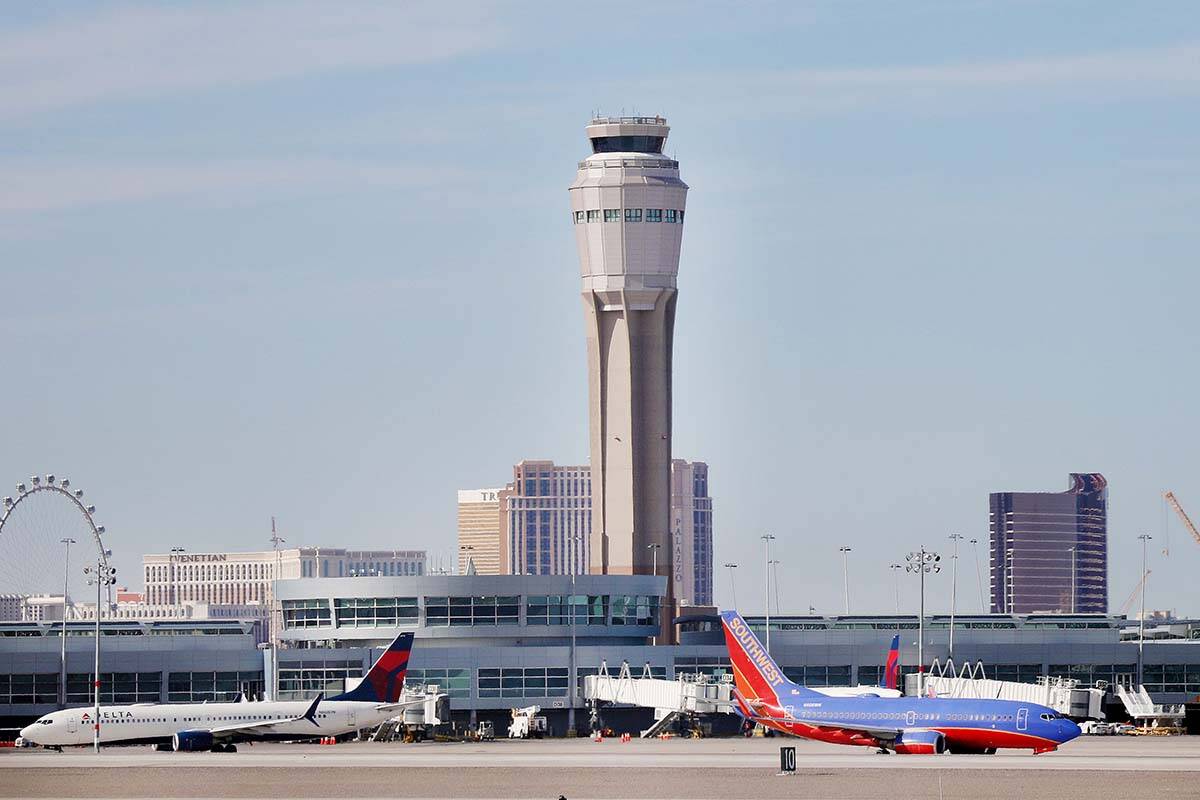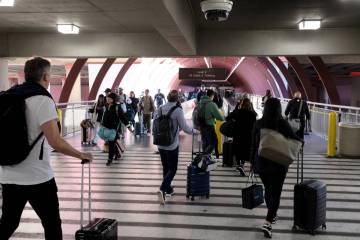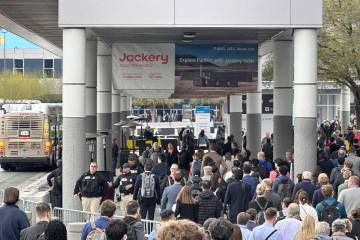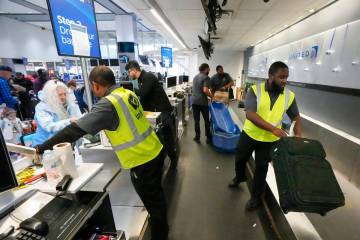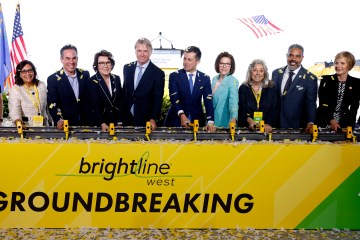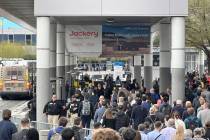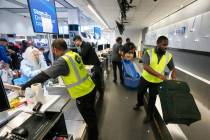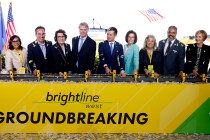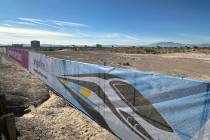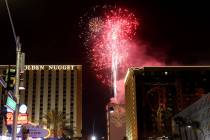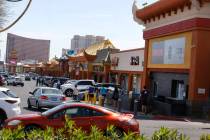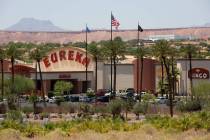Las Vegas airport to have 5G buffer zone when service launches
Las Vegas’ Harry Reid International is one of 50 U.S. airports that will have a buffer zone in place Wednesday when major wireless carriers roll out their new 5G service.
Telecommunications giants Verizon and AT&T plan to launch their expanded wireless service at midnight Wednesday, but they will delay turning it on near some airports after the nation’s largest airlines said the service would interfere with aircraft technology and cause massive flight disruptions.
Airlines want the new service, which has been delayed twice because of concerns voiced by airline executives and the Federal Aviation Administration, to be banned within two miles of airport runways.
Aviation officials worry the airwave spectrum used by the 5G service could interfere with altimeters pilots utilize to land and take off during inclement weather. The FAA said it would need to impose restrictions on flight operations using certain altimeter equipment in proximity to 5G antennas, which it noted could lead to flight disruptions.
A Reid airport spokesman said Tuesday that “based on the information we have, the impact at Harry Reid International Airport from 5G implementation is anticipated to be minimal and should affect landings on only one of our lesser utilized runways.”
Joe Rajchel, airport spokesman, added that “the main concern involves an instrument used on certain aircraft models, when there is low-visibility. The infrequency of low-visibility in Las Vegas, combined with the other factors … is why minimal impacts are expected.”
Airlines issue warning
The CEOs of the nation’s largest airlines — including American, Delta, United and Southwest — said interference with aircraft systems would be worse than they originally thought, making many flights impossible.
“To be blunt, the nation’s commerce will grind to a halt” unless the service is blocked near major airports, the CEOs said in a letter Monday to federal officials including Transportation Secretary Pete Buttigieg.
AT&T said in a statement that it is still planning to launch the expanded 5G service Wednesday, but would do so initially with the airport buffer zones.
“At our sole discretion we have voluntarily agreed to temporarily defer turning on a limited number of towers around certain airport runways as we continue to work with the aviation industry and the FAA to provide further information about our 5G deployment, since they have not utilized the two years they’ve had to responsibly plan for this deployment,” AT&T said in a statement.
Verizon also confirmed Tuesday its plans to go ahead with its launch, also with the airport limitations in place.
“Tomorrow, Verizon will launch its 5G Ultra Wideband network which will enable more than 90 million Americans to experience the transformative speed, reliability and power of this game-changing network on the go or in their homes or businesses,” a Verizon spokesperson said in a statement. “Americans have been clamoring for 5G and tomorrow we will deliver it. As the nation’s leading wireless provider, we have voluntarily decided to limit our 5G network around airports.”
President Joe Biden said the agreements by AT&T and Verizon “will avoid potentially devastating disruptions to passenger travel, cargo operations, and our economic recovery, while allowing more than 90 percent of wireless tower deployment to occur as scheduled.” He said the administration will keep working with both sides to reach a permanent solution around key airports.
Technology used in other countries
Both AT&T and Verizon say their equipment will not interfere with aircraft electronics, and noted that the technology is being safely used in many other countries.
“We are frustrated by the FAA’s inability to do what nearly 40 countries have done, which is to safely deploy 5G technology without disrupting aviation services, and we urge it do so in a timely manner,” AT&T’s statement said.
The U.S. Travel Association, a national nonprofit that represents the travel industry, issued a statement Tuesday urging a delay in the 5G service rollout around various U.S. airports.
“The U.S. Travel Association is urgently calling on the U.S. government and mobile wireless carriers to delay the introduction of 5G wireless around affected airports until critical operational concerns can be resolved,” association President and CEO Roger Dow said in a statement. “The implementation of 5G around affected airports threatens to disrupt domestic and international air travel, delay thousands of passengers, and cause unnecessary economic harm to the nation and the entire travel industry – not just airlines.
“Now is not the time to take such significant risks. We strongly urge the U.S. government and mobile wireless carriers to act immediately to delay the implementation of 5G around affected airports identified by the FAA.”
The enhanced 5G service is said to have faster internet speeds and enhanced bandwidth compared to 4G service.
The prospect of disrupted aviation industry follows nearly a month of widespread flight cancellations because of winter weather in parts of the U.S. and a surge of COVID-19 cases among airline employees.
Contact Mick Akers at makers@reviewjournal.com or 702-387-2920. Follow @mickakers on Twitter. The Associated Press contributed to this story.



